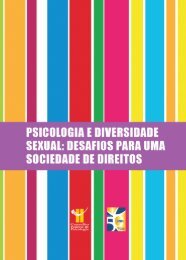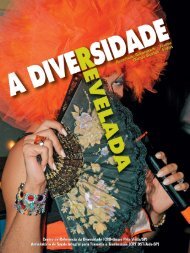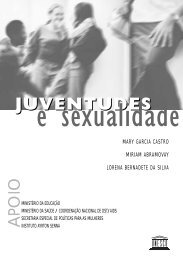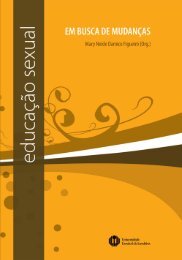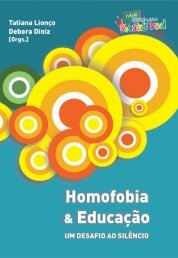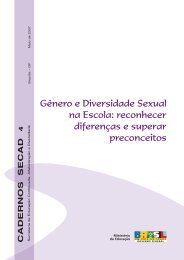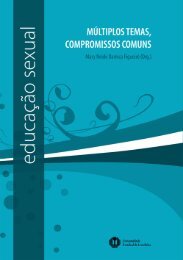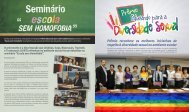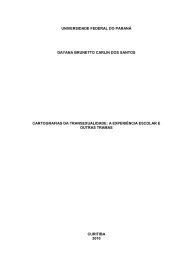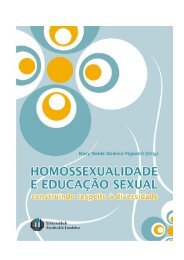A diversidade sexual na escola: produção de subjetividade e ...
A diversidade sexual na escola: produção de subjetividade e ...
A diversidade sexual na escola: produção de subjetividade e ...
You also want an ePaper? Increase the reach of your titles
YUMPU automatically turns print PDFs into web optimized ePapers that Google loves.
ABSTRACT<br />
This study investigates the effects of the statements of the current public policies on the<br />
<strong>sexual</strong> diversity proposed for education, mainly through the program Brasil Sem<br />
Homofobia (Brazil without homophobia). The a<strong>na</strong>lysis of the practices installed in the<br />
school daily has as a focus un<strong>de</strong>rstand effects of the proposition of an inclusive and<br />
non sexist education particularly regarding homophobia. The research was done in two<br />
public network schools in Porto Alegre, one state and the other municipal, where<br />
observations of the school daily and interviews with teachers were ma<strong>de</strong>. This research<br />
was <strong>de</strong>veloped from a genealogical orientation using the theoretical production of Michel<br />
Foucault as a means to reflect on the conditions of possibility of the emergence and<br />
implementation of these public policies and their impact on school practices. In these<br />
practices there is a well marked place for the other, the logic usualy used refers to an<br />
i<strong>de</strong>al, what should be, the expected – the heteronormativity. Different discourses are<br />
used to keep [ou mantain] the different in a distant place. The proposal of inclusion is<br />
bound to a <strong>de</strong>ficiency, disadvantage, and <strong>de</strong>viation of the individual that needs the<br />
intervention of the inclusive process. The state intervention justifications are of<br />
protection and constitute a place for the aimed population of people in risk and<br />
vulnerability. The achievement of legal rights is being fundamental for the guarantee of<br />
spaces and legitimacy and there is an appropriation by the teachers of the legal<br />
discourse of human rights and <strong>sexual</strong> rights. The possibility of inclusion of the <strong>sexual</strong><br />
different is supported in the statement that sais that all have rights to schooling, but a<br />
question that presents itself on the proposal of inclusion is its use as a practice of<br />
tolerance and attempt of ending the differences having the normality as a reference.<br />
Homophobic and sexit statements are <strong>de</strong>eply related to the ones of class and ethnic<br />
discrimi<strong>na</strong>tion, inequalities overlap and strengthen themselves.<br />
Keywords: <strong>sexual</strong> diversity, teacher training, public policies




